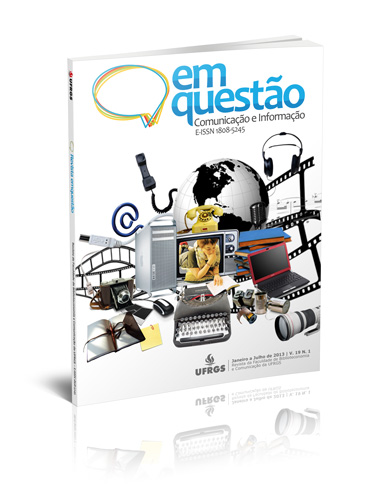Managerial aspects of Brazilian scientific policy: a look at the scientific field of sociology against the evaluation criteria CNPq and CAPES
Keywords:
Political science. Scientific production. Brazilian sociology. Criteria for evaluation - CAPES. Criteria for evaluation - CNPq.Abstract
Different sociologists of science believe that the construction of academic reputation within the scientific field is related to the ability of the researcher to reproduce the objective criteria that embody the management structure evaluation of scientific activity. In this sense, this research investigates the causal relationship between scientific and academic reputation in sociology. For this, first identified the criteria used by CNPq and CAPES to evaluate scientific output. Later, chose up two groups of sociologists, mapping to scientific production of both groups published between 2007 and 2009. Finally, we compared this production criteria CNPq and CAPES. The results revealed that the book was the least used type of publication and that over 80% of the scientific production is published in the national language. The research also concluded that the scientific production of the two groups does not meet the criteria of the reputation system of Sociology in Brazil.Downloads
Downloads
Published
How to Cite
Issue
Section
License
Copyright (c) 2013 Kátia Carvalho, Nanci Oddone, Anderson Luis da Paixão Café, Vinícios Menezes

This work is licensed under a Creative Commons Attribution 4.0 International License.
Authors who publish with this journal agree to the following terms:
Authors will keep their copyright and grant the journal with the right of first publication, the work licensed under License Creative Commons Attribution (CC BY 4.0), which allows for the sharing of work and the recognition of authorship.
Authors can take on additional contracts separately for non-exclusive distribution of the version of the work published in this journal, such as publishing in an institutional repository, acknowledging its initial publication in this journal.
The articles are open access and free. In accordance with the license, you must give appropriate credit, provide a link to the license, and indicate if changes were made. You may not apply legal terms or technological measures that legally restrict others from doing anything the license permits.









